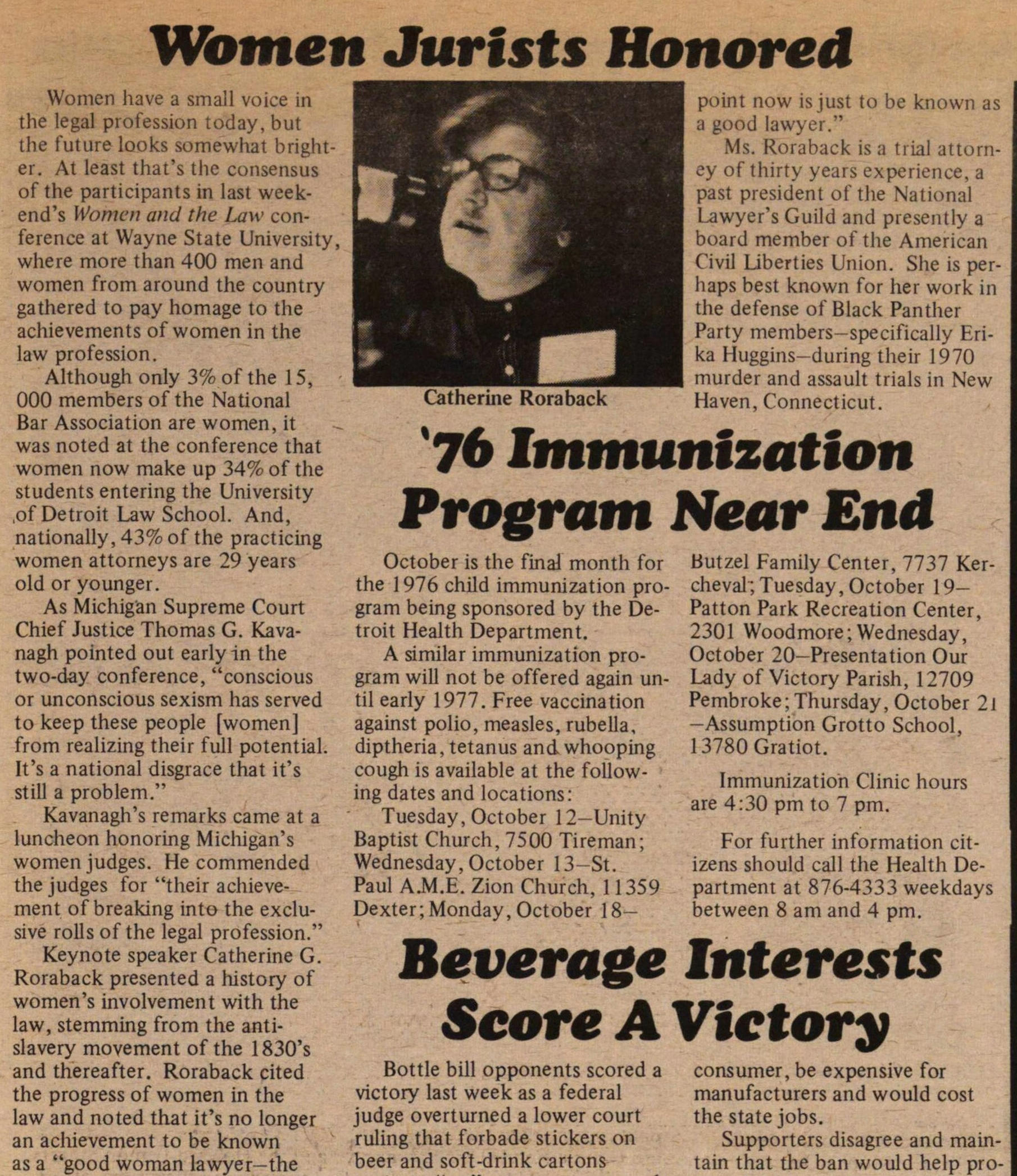Women Jurists Honored

Women have a small volee in the legal profession today, but the future looks somewhat brigluer. At least that's the consensus of the participants in last weekend's Women and the Law conference at Wayne State University, where more than 400 men and women from around the country gathered to pay homage to the achievements of women in the law profession.
Although only 3% of the 15, 000 members of the National Bar Association are women, it was noted at the conference that women now make up 34% of the students entering the University of Detroit Law School. And, nationally, 43% of the practicing women attorneys are 29 years old or younger.
As Michigan Supreme Court Chief Justice Thomas G. Kavanagh pointed out early in the two-day conference, "conscious or unconscious sexism has served to keep these people [women] from realizing their full potential. It's a national disgrace that it's still a problem."
Kavanagh's remarks came at a luncheon honoring Michigan's women judges. He commended the judges for "their achievement of breaking into the exclusive rolls of the legal profession."
Keynote speaker Catherine G. Roraback presented a history of women's involvement with the law, stemming from the antislavery movement of the 1830's and thereafter. Roraback cited the progress of women in the law and noted that it's no longer an achievement to be known as a "good woman lawyer- the point now is just to be known as a good lawyer."
Ms. Roraback is a trial attorney of thirty years experience, a past president of the National Lawyer's Guild and presently a board member of the American Civil Liberties Union. She is perhaps best known for her work in the defense of Black Panther Party members- specifically Erika Huggins-during their 1970 murder and assault trials in New Haven, Connecticut.
Article
Subjects
Freeing John Sinclair
Old News
Ann Arbor Sun